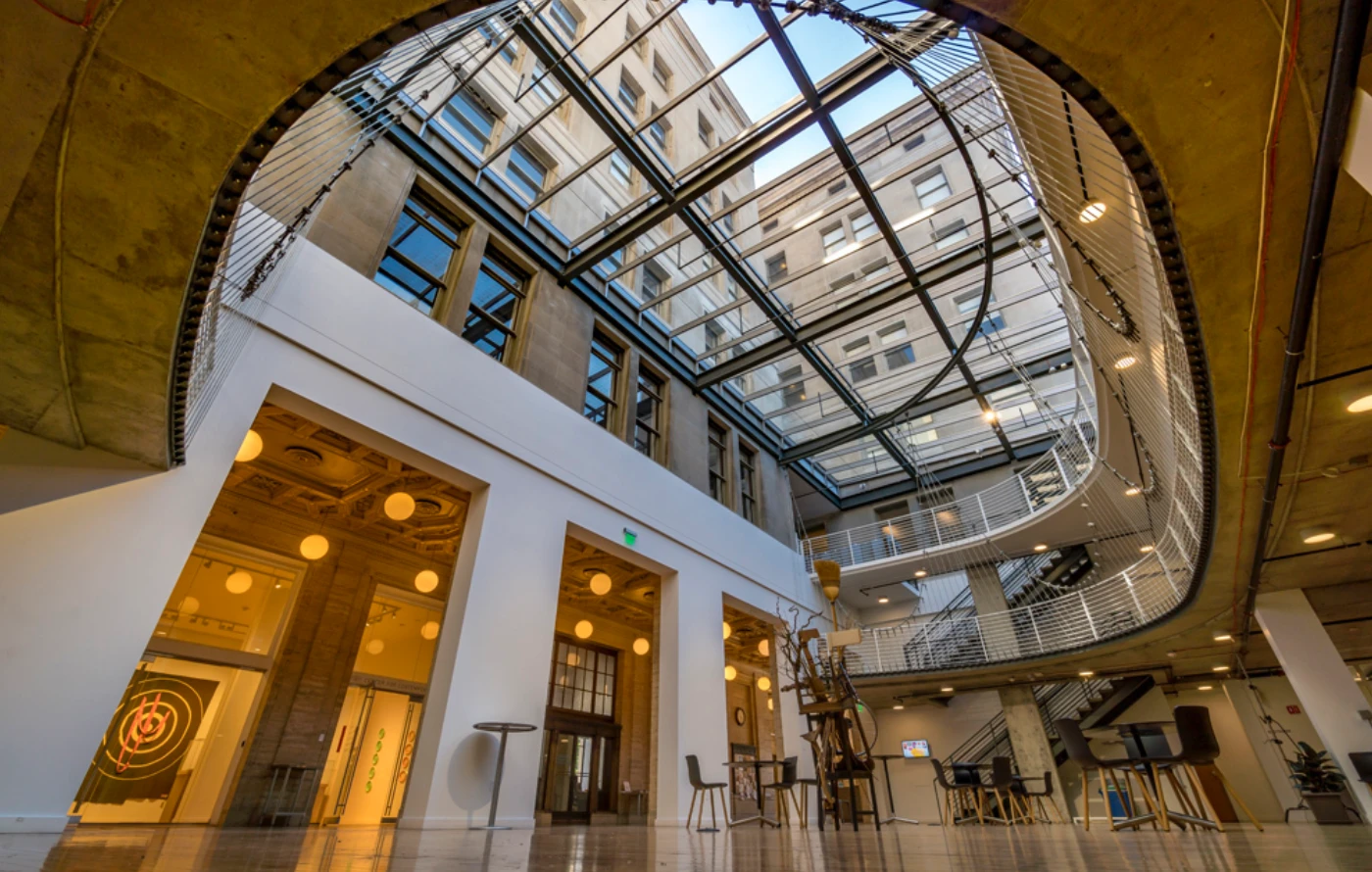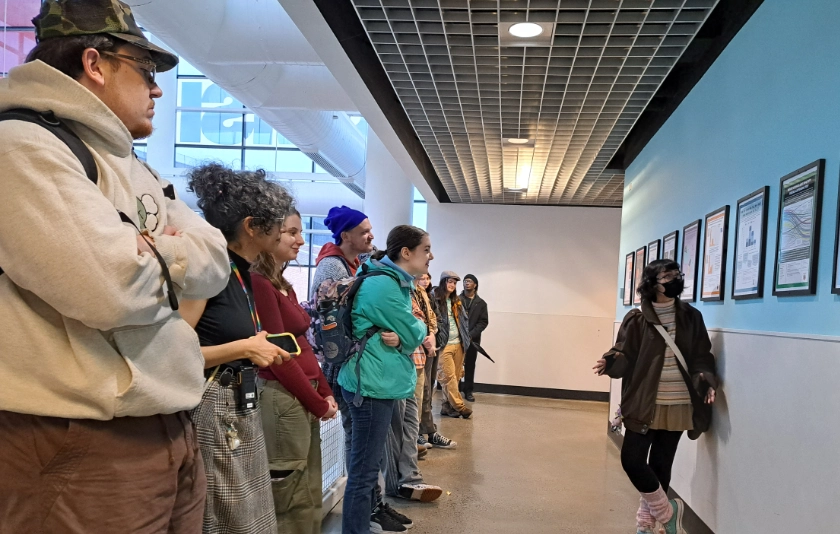Willamette University has been awarded a grant from the Frankenthaler Climate Initiative (FCI), a grantmaking program established by the Helen Frankenthaler Foundation in collaboration with Environment & Culture Partners and RMI that supports energy efficiency and clean energy use for the visual arts as the first and largest private national grantmaking program of its kind.
The award will allow facilities upgrades at Willamette’s historic Pacific Northwest College of Art (PNCA) campus in the heart of Old Town and the Pearl Neighborhoods in Portland. The campus serves the Portland Metro area and greater pacific northwest art community as a cultural hub for makers, and a key presenter of modern artists of our time and region.
The grant supports a lighting retrofit at Willamette’s Arlene and Harold Schnitzer Center for Art and Design, the home of PNCA’s primary gallery, classroom, office, and creative spaces. The existing fluorescent fixtures will be replaced with more energy-efficient and reliable LED lights, providing more eyesight-friendly and less intrusive lighting.
The functional and sustainable fixtures will also serve PNCA’s public programming, including art exhibitions, programs, and workshops that attract more than 20,000 participants annually.
The project will significantly reduce lighting system electricity consumption, resulting in 58% estimated energy savings per year, and a cost saving of approximately $14,500 per year. It will also reduce maintenance costs and associated disruptions from outages.
“At PNCA, we are proud to be a cultural and educational institution at the center of Portland’s vibrant arts community,” said Jennifer Cole, Jordan Schnitzer Dean of Pacific Northwest College of Art. “These facility upgrades will enable us to continue to empower our student-artists and welcome in the city of Portland to experience everything PNCA has to offer while stewarding our fragile climate.”
The investment extends Willamette University’s commitment to promote sustainability, not just in the arts, but throughout the university’s Portland and Salem campuses. This project is part of a broad university effort to build greater efficiency and environmental sustainability, which includes LED lighting upgrades in all campus buildings, networked smart thermostats, and replacing outdated boilers. The university’s strategic plan names climate change as an area of focus to be explored through interdisciplinary academic and co-curricular initiatives. From courses engaging environmental issues across the curriculum to preparing graduates to tackle climate change in their careers, Willamette is committed to creating a more sustainable and resilient future.
About the Frankenthaler Climate Initiative
The Frankenthaler Climate Initiative is the first nationwide program to support energy efficiency and clean energy use for the visual arts and the largest private national grantmaking program to address climate action through cultural institutions. The ongoing initiative provides critical support to visual arts organizations in the United States seeking to assess their impact on the environment and to lower ongoing energy costs. The Foundation has conferred more than $17.5 million since its launch in 2021, supporting 318 energy efficiency and clean energy projects at 249 institutions across 40 states in the U.S.
Photo credit: Adam Simmonds.



